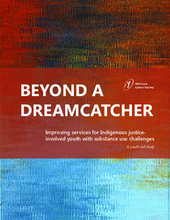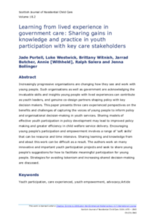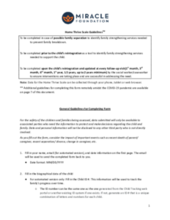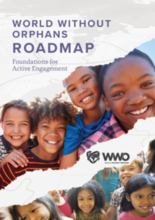Displaying 6411 - 6420 of 14140
The aims of this study were to systematically evaluate and comparatively analyse the mental health status of left‐behind children (LBC) in China and to provide a scientific basis for mental intervention and healthy education for LBC.
This exploratory, qualitative, multi-case study sought to understand, from the perspective of successful foster alumni college students, the role and influence of family members.
The main objective of this study is to explore, from a bottom-up perspective, the moderating effect of an experienced happiness indicator (OHS) and the daily-life activities shared between caregivers and adolescents in the residential care system in Peru.
This youth-led study sought to capture the perspectives of Indigenous youth who had been involved in the criminal justice system (or who were at high risk of such involvement), and who had accessed substance use treatment and/or had experienced barriers to accessing substance use services.
This paper presents three care experienced perspectives on the benefits and challenges of capturing the voices of young people to inform policy and organisational decision-making in youth services.
The purpose of the assessment was to present an overview of best practice Family Strengthening interventions, models, and approaches (hereinafter grouped together as 'interventions') in Central and Eastern European middle-income countries.
The purpose of the Home Thrive Scale™ is to assess the possibility of a child staying with or returning to their family and to identify services needed to make reintegration possible.
World Without Orphans Roadmap: Foundations for Active Engagement is a result of broadscale collaboration
among global, regional, and national leaders across many faith communities. It is informed by experts
from global organizations that lead the way in identifying best practices for caring for vulnerable families
and children.
Sri Lanka's National Policy on the Alternative Care of Children outlines a comprehensive range of alternative care options and encourages the reforming of all formal structures that provide at-home and out-of-home services for children deprived of care and protection or at risk of being so. This policy also extends to children under care of the Juvenile Justice System. It provides policy solutions to programming for children at risk of family separation and facing deprivations such as child abuse, neglect, child labor, poverty, addiction, imprisonment, human trafficking, mental and physical disabilities, HIV/AIDS, domestic violence, orphanhood, abandonment and displacement etc. The policy also takes into consideration and encompasses provisions to children who are forced to live and work on streets.
This policy brief draws on the substantial evidence on the health, educational, and economic benefits of family-friendly policies to recommend four transformative shifts in workplaces.







